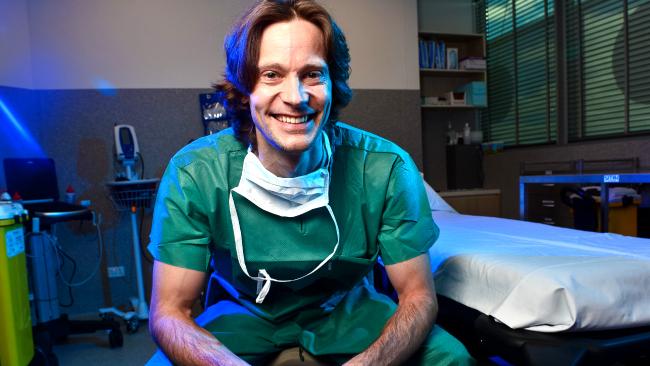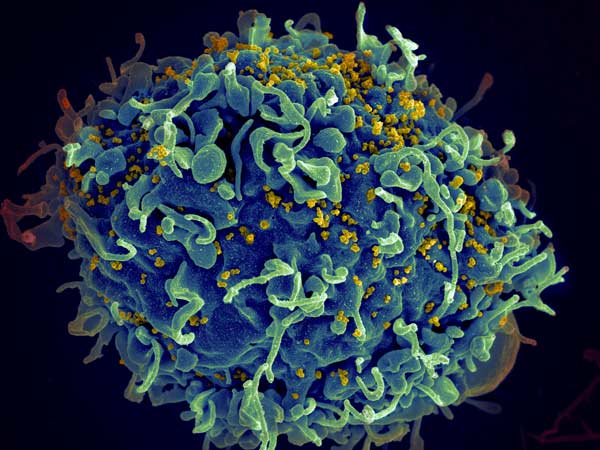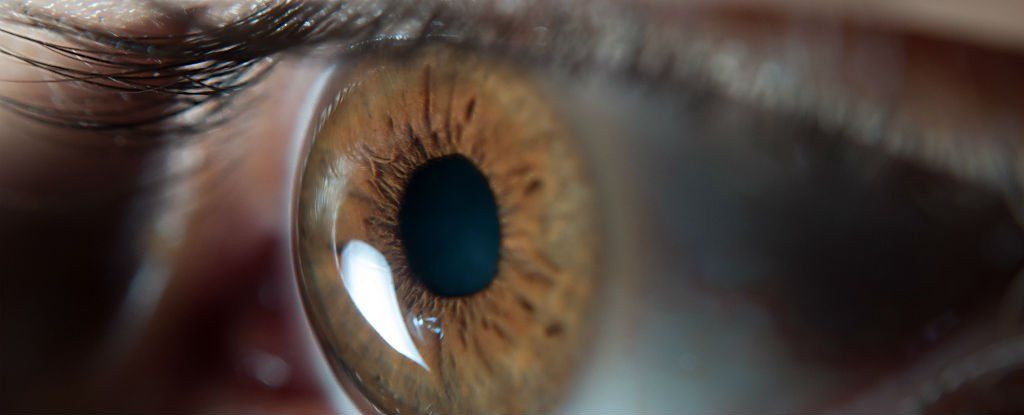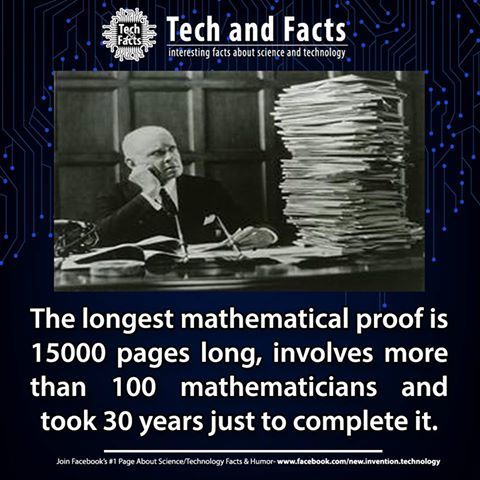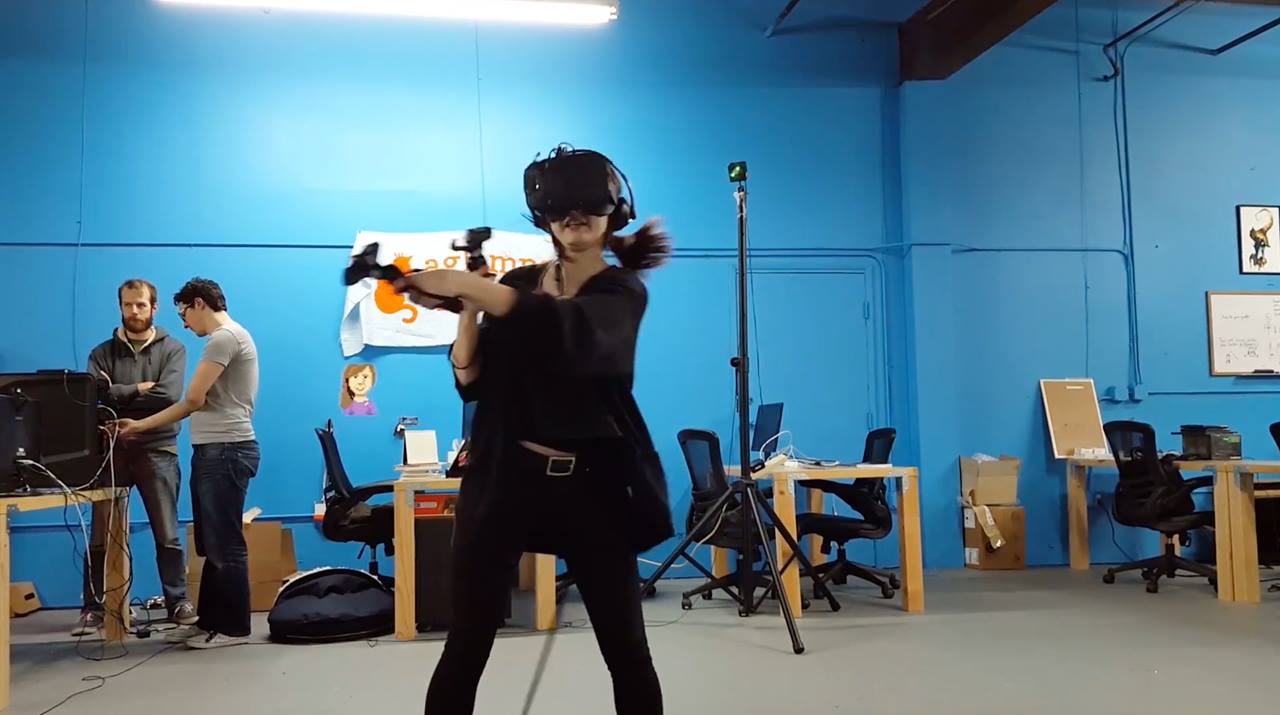Page 10968
Feb 28, 2016
“Genetic Scissors” Can Completely Eliminate HIV From Cells
Posted by Shailesh Prasad in categories: bioengineering, biotech/medical, evolution, genetics
Thanks to the cocktail of drugs that make up antiretroviral therapy, HIV is no longer a death sentence. But there are downsides to antiretroviral therapy—taking the treatment for many years is expensive, increases drug resistance, and could cause adverse reactions in a patient. And, because the virus stays in reservoirs in the body, the disease can continue to progress in patients if they stop taking their medication.
Now a team of German researchers has found an enzyme that can “cut” the viral DNA out of a cell’s genetic code, which could eradicate the virus from a patient’s body altogether. The proof-of-concept study, published this week in Nature Biotechnology and reported by Ars Technica, was done in mice, but the researchers believe that their conclusions show that this DNA-snipping enzyme could be used in clinical practice. And if it can cut HIV’s genetic code out of a patient’s body, the technique could be a cure for the disease.
The researchers created the DNA-snipping enzyme called Brec1 using directed evolution, an engineering technique that mimics proteins’ natural evolution process. They programmed the enzyme to cut DNA on either side of a sequence characteristic of HIV—a difficult task since the DNA of organisms and of the virus itself mutates often. Still, the researchers identified a well-conserved sequence, then they tested how reliably the enzyme could snip out that sequence in cells taken from HIV-positive patients, in bacteria, and in mice infected with the human form of HIV. After a number of tweaks, Brec1 would cut only that sequence of DNA, patching up the cell’s genetic code once the HIV sequence was cleaved out. After 21 weeks, the cells treated with Brec1 showed no signs of HIV.
Feb 28, 2016
Artificial intelligence ‘should be used to give children one-on-one tutoring’
Posted by Karen Hurst in categories: education, robotics/AI
I fully support this only when the net and infrastructure is secured from hackers.
Artificial intelligence should be used to provide children with one-to-one tutoring to improve their learning and monitor their well-being, academics have argued.
One-to-one tutoring has long been thought the most-effective approach to teaching but would be too expensive to provide for all students.
Continue reading “Artificial intelligence ‘should be used to give children one-on-one tutoring’” »
Feb 28, 2016
Report Cites Dangers of Autonomous Weapons
Posted by Karen Hurst in categories: cybercrime/malcode, military, policy, robotics/AI
I agree 100% with this report by former pentagon official on AI systems involving missiles.
A new report written by a former Pentagon official who helped establish United States policy on autonomous weapons argues that such weapons could be uncontrollable in real-world environments where they are subject to design failure as well as hacking, spoofing and manipulation by adversaries.
In recent years, low-cost sensors and new artificial intelligence technologies have made it increasingly practical to design weapons systems that make killing decisions without human intervention. The specter of so-called killer robots has touched off an international protest movement and a debate within the United Nations about limiting the development and deployment of such systems.
Continue reading “Report Cites Dangers of Autonomous Weapons” »
Feb 28, 2016
Walter O’Brien Tipped As The Next Elon Musk, Ranked As One Of Five Smartest People Alive
Posted by Karen Hurst in categories: cybercrime/malcode, Elon Musk

What can be better than to go head to head against cyber attacks, let computer have a mind of their own and protect themselves? The executive producer of CBS hit show, Scorpion, and the CEO of Scorpion Computer Services, Walter O’Brien says that it not only is possible, but can be the only solution to stop such attacks.
@tferriss loved the Walter O’ Brien podcast. But, did you pick up on any issues with his story? https://t.co/jf8Gm2Ls1Y
Feb 28, 2016
A blind woman has regained sight following a controversial stem cell treatment
Posted by Shailesh Prasad in category: biotech/medical
Vanna Belton from Baltimore has been blind for more than five years, but after undergoing surgery where stem cells extracted from her bone marrow were injected into her right eye’s retina and left eye’s optic nerve, she has regained some of her sight.
“When I realised I could see the license plates, we started walking around the neighbourhood reading them,” she told the Baltimore Sun, adding that for the first time since 2009, she’s been able to navigate her way around without a cane.
While Belton’s recovery is certainly remarkable, it’s also incredibly perplexing. The doctor who performed the stem cell treatment, ophthalmologist Jeffrey N. Weiss, cut so many corners to get her and 277 other patients into surgery, even he can’t explain why it works.
Continue reading “A blind woman has regained sight following a controversial stem cell treatment” »
Feb 28, 2016
Hand-to-Hand Zombie Combat in VR
Posted by Shailesh Prasad in category: virtual reality
Feb 28, 2016
There’s a City in China That Was Built to Replicate Jackson Hole, Wyoming
Posted by Karen Hurst in category: futurism

Welcome to jackson hole WY in china.
You can very literally travel around the world without stepping a foot outside of China, thanks to the country’s ” One City, Nine Towns” initiative. The world’s most populous country has another replica to add to this list: Jackson Hole, China—complete with awe-inspiring mountain vistas, log cabins aplenty, and more mounted taxidermy than you’re likely to find anywhere else in the country. The biggest difference is that you won’t find any skiing opportunities at China’s take on the American destination.
Feb 28, 2016
Tiny Supercapacitors Built Directly on a Chip, Making More Powerful Microchips
Posted by Shailesh Prasad in categories: computing, internet
Scientist have created tiny supercapacitators that can be embedded directly on a microchip, a game-changer that promises smaller, more powerful devices.
As the semiconductor industry begins to adjust to a new roadmap, research on microchips is being focused less on Moore’s Law (the arithmetic increase through time in the power of microchips) but instead on incremental changes related to the developing Internet of Things, such as increasing RAM or integrating gyroscopes or GPS sensors.
An important part of these changes include building more efficient energy storage devices to power these additional sensors. This development of high-performance batteries would go a long way to enable long-lived sensors and radio frequency identification (RFID) tags. The problem, however, is that miniaturized energy storage devices are not only difficult to produce but they often fail to function well with other electronics.
Continue reading “Tiny Supercapacitors Built Directly on a Chip, Making More Powerful Microchips” »
